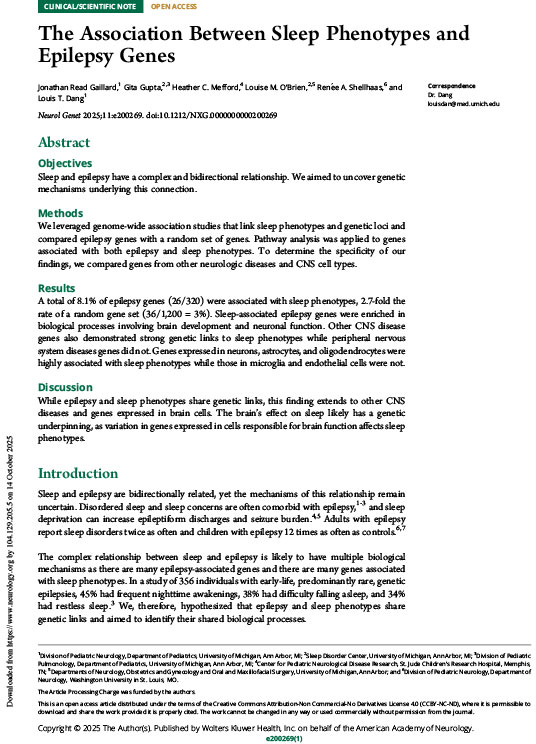The Association Between Sleep Phenotypes and Epilepsy Genes
August 2025 | Neurology
Abstract
Objectives:
Sleep and epilepsy have a complex and bidirectional relationship. We aimed to uncover genetic mechanisms underlying this connection.
Methods
We leveraged genome-wide association studies that link sleep phenotypes and genetic loci and compared epilepsy genes with a random set of genes. Pathway analysis was applied to genes associated with both epilepsy and sleep phenotypes. To determine the specificity of our findings, we compared genes from other neurologic diseases and CNS cell types.
Results
A total of 8.1% of epilepsy genes (26/320) were associated with sleep phenotypes, 2.7-fold the rate of a random gene set (36/1,200 = 3%). Sleep-associated epilepsy genes were enriched in biological processes involving brain development and neuronal function. Other CNS disease genes also demonstrated strong genetic links to sleep phenotypes while peripheral nervous system diseases genes did not. Genes expressed in neurons, astrocytes, and oligodendrocytes were highly associated with sleep phenotypes while those in microglia and endothelial cells were not.
Discussion
While epilepsy and sleep phenotypes share genetic links, this finding extends to other CNS diseases and genes expressed in brain cells. The brain's effect on sleep likely has a genetic underpinning, as variation in genes expressed in cells responsible for brain function affects sleep phenotypes.

